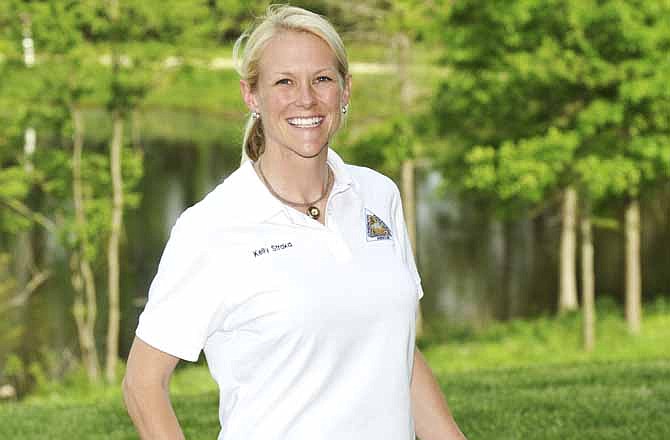As the Department of Conservation's first state wildlife veterinarian, Kelly Straka manages the health of Missouri's wildlife populations.
In the past, the department consulted with private and governmental veterinarians or depended upon well-trained biologists to study diseases, said Straka, who joined the department last fall.
"It's really exciting," she said. "More states are moving toward this model."
As the state wildlife veterinarian, Straka doesn't treat or rehabilitate individual animals. Instead, her job mainly entails managing herd health and understanding population dynamics.
Straka, 34, is a wildlife biologist-turned-veterinarian. She grew up in Minnesota and earned a doctorate in veterinary medicine, with a specialty in wildlife, from the University of Minnesota. She also is finishing her master's degree in public health (human, that is) from the same university. She has prior experience working for the U.S. Department of Agriculture.
Straka said chronic wasting disease, bovine tuberculosis and brucellosis are the three most serious diseases she monitors.
"We have to be very careful with any diseases that affect domestic livestock herds," she said.
One of her biggest challenges is addressing chronic wasting disease, which has been found in both the free-ranging deer population and in captive herds. (In some areas of the state, deer are raised domestically for venison and to stock hunting grounds.) The disease was found for the first time last year in Macon and Linn counties.
To limit the disease's spread, the Missouri Department of Conservation tests for it during hunting season.
"Unfortunately there is no live animal test for CWD," she said. "What we do is remove the lymph nodes and send them in to the laboratory. Hunters have become more accustomed to us doing this."
Part of her job involves solving mysteries. Recently when 100 dead waterfowl were discovered on MDC land, people wanted to know what happened.
Using veterinary forensics and the department's necropsy lab, Straka was able to blame a bout of fungal pneumonia and avian cholera for the dead birds.
Although Straka is more familiar with breeds like elk and deer, birds are more interesting to her right now. She's excited about ministering to Missouri's greater prairie chickens, a species near the brink of extinction.
"I'm one of those people who totally geeks out when I recognize a bird song," she said. "I'm the kind of person who will say, "That's a black-throated green warbler,' and my husband will reply, "You are so annoying.'"
A native of northern Minnesota, Straka is excited to be in Missouri and said the state's natural resources are "impressive."
"In my first two days here, I took off for the Current River," she said.
She's also tried fly fishing and turkey hunting. So far, those trips have been less than fruitful.
"The fish are so picky! I literally hit the fish with my fly, and they ignored it," she lamented. "I came from a state where hunting and fishing is huge, and to see that kind of passion here, too, is exciting."
Her only complaint so far about Missouri appears to be the weather. On a 91-degree day last week, Straka was feeling the heat.
"Man, it's hot!" she joked, fanning herself. "I don't know if I'm going to be able to make it!"

